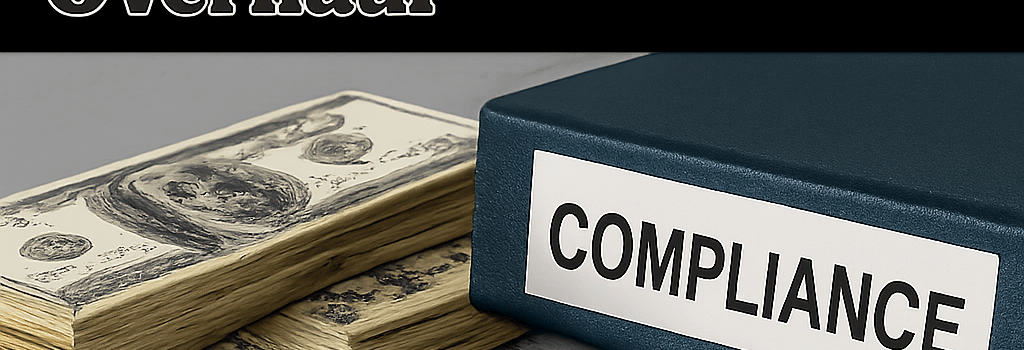Google Settles Lawsuit, Commits $500M to Compliance Overhaul

Background: “Don’t Be Evil” Meets Intensified Scrutiny
Since its early days, Google’s unofficial motto “Don’t be evil” has been a touchstone for both employees and regulators. However, a series of high-profile antitrust defeats—from the Epic Games app-store case in 2023 to the U.S. Department of Justice’s search-monopoly ruling in 2024 and the advertising antitrust loss earlier this year—prompted shareholders to file a consolidated derivative lawsuit in 2021. A Michigan pension fund led the charge, alleging that Google’s monopolistic conduct in search, mobile distribution, and ad tech posed existential risks to Alphabet’s future.
Key Provisions of the Settlement
Under the terms disclosed by Bloomberg Law, Alphabet will allocate $500 million over 10 years toward reforms designed to detect and deter anticompetitive practices:
- Board-Level Compliance Committee: A dedicated oversight body, staffed with legal, antitrust, and technical experts, reporting directly to CEO Sundar Pichai. This rarity among U.S. corporations will employ Governance, Risk, and Compliance (GRC) platforms—such as ServiceNow GRC or SAP GRC—to centralize policy management and real-time risk dashboards.
- Enhanced Legal Intake and Pre-Clearance: Introduction of an AI-driven risk-scoring engine leveraging machine learning classifiers trained on historical antitrust rulings. Engineers and product managers will route new initiatives through an automated workflow integrated with Atlassian Jira and internal Slack channels, triggering legal review when threshold triggers are met.
- Data Preservation and Auditability: Mandatory retention of internal chats, emails, and ephemeral communications using eDiscovery tools like Microsoft Purview or Google Vault. Immutable audit logs will be forwarded to Splunk or Elastic Security for tamper-resistant storage, addressing previous judicial concerns about auto-deleting messages.
- Budget Breakdown: An estimated $200 million for hiring and training compliance officers, $150 million for technology procurement (GRC, monitoring, analytics), and $150 million for external audits, stakeholder outreach, and legal fees.
Technical Compliance Mechanisms Under the Hood
To operationalize these reforms, Google plans to deploy a combination of rule-based engines and natural language processing (NLP) classifiers that flag high-risk product requirements. For example, any code changes touching distribution APIs in Google Play or search ranking algorithms will automatically spawn a compliance ticket. This system will be underpinned by:
- Machine Learning Risk Models: Trained on past enforcement actions, these models assign a probabilistic risk score to new features, allowing legal teams to focus on the top 5% of highest-risk proposals.
- Distributed Ledger for Audit Trails: A private blockchain ledger to record approvals and sign-offs, ensuring immutability and easy forensic analysis in case of future litigation.
- Continuous Monitoring with SIEM Integration: Real-time alerts for suspicious communications or policy breaches, integrated into Security Information and Event Management (SIEM) solutions.
Implications for Google Cloud and the Ad Ecosystem
Beyond search and app distribution, these compliance measures could ripple across Google Cloud and its advertising business. Under the EU’s Digital Markets Act (DMA), Google must enable interoperability and fair access for third-party ad buyers. Google’s reforms may accelerate deployment of differential privacy algorithms in Ads Data Hub, allowing rival platforms to perform aggregated analytics without compromising user data.
Expert Perspectives on Governance Reforms
“By codifying compliance into their CI/CD pipelines and leveraging AI for risk assessment, Google is setting a new standard for corporate governance,” said Dr. Mary Chen, a GRC specialist at the Compliance Innovation Lab. “The real test will be whether these committees exercise independent judgment or simply rubber-stamp executive decisions.”
Looking Ahead: EU Digital Markets Act and Ongoing Litigations
While the U.S. settlement awaits formal approval from District Judge Rita Lin, Google is already preparing for DMA compliance by March 2026. Under DMA, Google must open its Play Store to third-party app markets, share advertising telemetry with competitors via standardized APIs, and license its core search index. Meanwhile, a coalition of state attorneys general is gearing up for a fresh challenge targeting Google’s location-tracking and privacy practices, due to be heard later this year.
Potential Technical and Business Overhauls
- Multi-Store Distribution: Implementing side-loading safeguards and sandboxed runtimes in Android to support alternative app stores without compromising security.
- Search Index Licensing: Exposing query and clickstream data through RESTful APIs with tiered pricing, complying with both U.S. consent decrees and EU interoperability rules.
- Browser Independence: Spinning off Chrome’s codebase as a standalone unit, maintaining the open-source Chromium project while isolating business development decisions from core infrastructure.
Conclusion
Alphabet’s $500 million commitment represents a watershed moment: a major tech titan formally embedding antitrust and regulatory compliance into its DNA. While these measures cannot reverse past rulings, they may recalibrate how Google innovates and competes over the next decade. The broader industry will watch closely to see if structured governance and AI-driven oversight can truly curb monopolistic behavior.